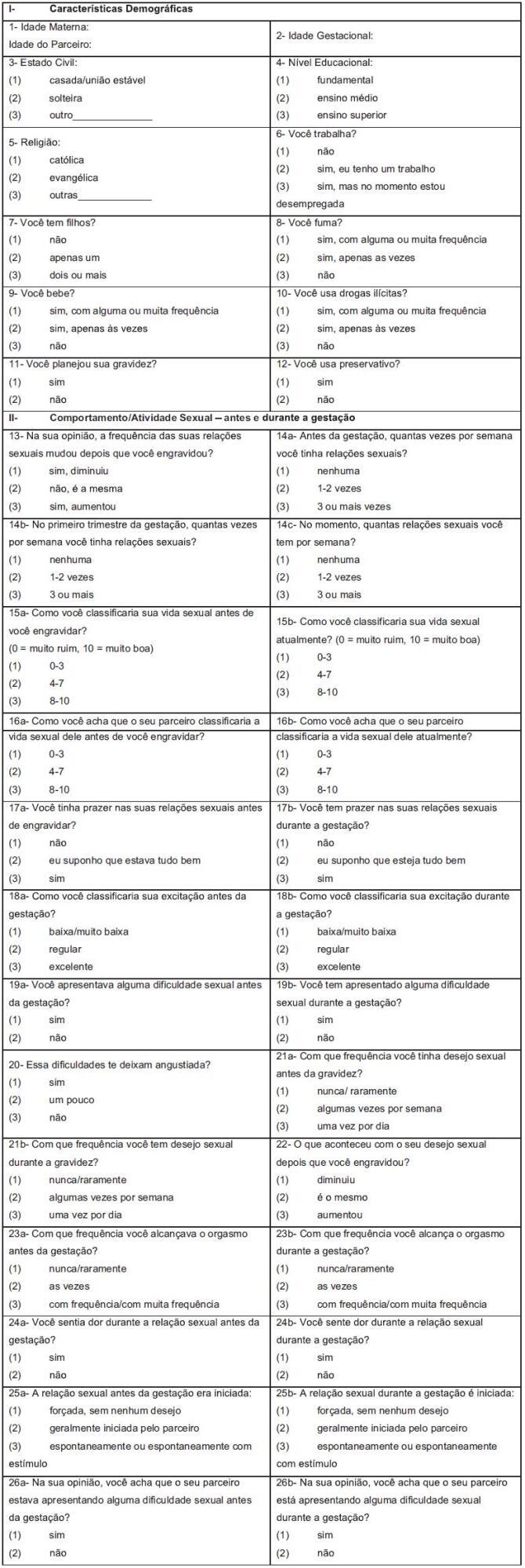Revista Brasileira de Ginecologia e Obstetrícia. 2018;40(6):322-331

To establish the Pregnancy Sexual Response Inventory (PSRI) scores for each domain before and during pregnancy, and to publish the Brazilian Portuguese version of the PSRI.
Pregnant women were recruited during antenatal care; the PSRI was administered to 244 women prenatally at Faculdade de Medicina de Botucatu, at Universidade do Estado de São Paulo (UNESP, in the Portuguese acronym). The PSRI scores were estimated based on the Kings Health Questionnaire (KHQ) and the Medical Outcomes Study 36-item short form survey (SF-36). The raw scale type was used to standardize the minimal value and amplitude of each domain. For each domain, the score varied from 0 to 100, and the composite score was obtained as the domain average. The composite score before and during pregnancy was determined by the sum of the scores of all specific domains for each divided by the full domain number. The categorization of the scale into quartiles was established when all PSRI-specific and composite scores were combined.
The composite and specific scores for each domain were categorized into quartiles: 0 < 25 as “very bad;” 25 < 50 as “bad;” 50 < 75 as “good” and 75 to 100 as “excellent.” The mean scores were lower during pregnancy than before pregnancy in 8 of the 10 domains. The Brazilian Portuguese PSRI version is presented.
This study allowed the establishment of the PSRI composite and specific scores for each domain, and the categorization of scores into quartiles: very bad, bad, good and excellent. In addition, the Brazilian Portuguese version of the PSRI is presented in full for application in the Brazilian population.
Search
Search in:


Comments